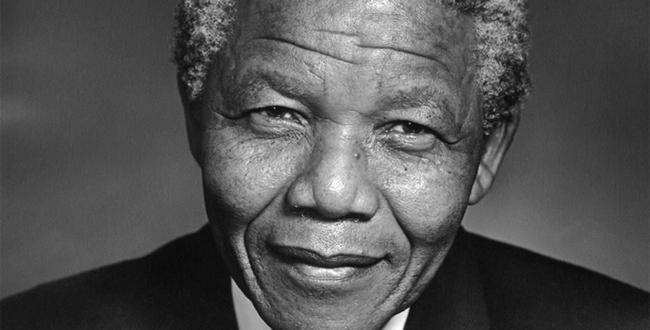Being Wise
Being wise involves possessing knowledge, experience, and good judgment, which enable someone to make sound decisions, solve problems effectively, and navigate life’s challenges with insight and understanding. Wisdom goes beyond mere intelligence or education; it encompasses the ability to apply knowledge and experience to make decisions that benefit oneself and others in the long term. Wise individuals often exhibit qualities such as self-awareness, empathy, humility, and a willingness to learn from both successes and failures.
The Essence of Wisdom: Cultivating Self-Awareness, Empathy, and Humility
In a world often dazzled by intelligence and knowledge, it is the essence of wisdom that truly illuminates the path to a fulfilling and meaningful life. Wise individuals, distinguished not merely by their intellect but by their character, exhibit a unique set of qualities that serve as beacons of guidance in navigating life’s complexities.
Self-Awareness: The Foundation of Wisdom
At the core of wisdom lies self-awareness – the ability to introspect, recognize one’s strengths and weaknesses, and understand the impact of one’s actions on oneself and others. Self-aware individuals possess a deep understanding of their emotions, motivations, and values, allowing them to make decisions aligned with their authentic selves. By embracing self-awareness, wise individuals cultivate a sense of clarity and purpose that serves as the foundation for their journey toward wisdom.
Empathy: The Bridge to Connection
Empathy, the ability to understand and share the feelings of others, is a hallmark of wisdom. Wise individuals possess a keen sensitivity to the experiences and perspectives of those around them, allowing them to forge deep and meaningful connections with others. By stepping into the shoes of others, wise individuals foster compassion, kindness, and understanding, nurturing relationships built on mutual respect and empathy. In a world often characterized by division and discord, empathy serves as a powerful antidote, bridging the gap between individuals and fostering unity and solidarity.
Humility: The Mark of True Greatness
Humility, often described as the willingness to acknowledge one’s limitations and imperfections, is a defining trait of wisdom. Wise individuals eschew arrogance and hubris, recognizing that true greatness lies not in grandiosity but in humility. By embracing humility, wise individuals remain open to learning from others, valuing diverse perspectives and experiences. Rather than seeking to elevate themselves above others, they seek to uplift and empower those around them, fostering a culture of collaboration, growth, and mutual support.
A Willingness to Learn: Embracing Growth and Resilience
Wise individuals approach life with a steadfast willingness to learn from both successes and failures. They view challenges as opportunities for growth and resilience, recognizing that setbacks and obstacles are integral parts of the journey toward wisdom. Rather than succumbing to defeat or despair, wise individuals embrace adversity with courage and resilience, drawing strength from their experiences and emerging stronger and wiser with each trial overcome. By cultivating a growth mindset and a willingness to learn, wise individuals continuously evolve and adapt, enriching their lives and the lives of those around them.
Real Life Case Study
Nelson Mandela: the former President of South Africa and a global icon of wisdom, empathy, and humility.
One real-life example that comes to mind when we exemplify how wise individuals often exhibit qualities such as self-awareness, empathy, humility, and a willingness to learn from both successes and failures.; is that of Nelson Mandela, the former President of South Africa and a global icon of wisdom, empathy, and humility.
Throughout his life, Mandela exhibited remarkable qualities that exemplify wisdom:
1. Self-awareness: Mandela demonstrated a deep understanding of his own strengths and weaknesses. Despite enduring 27 years of imprisonment for his activism against apartheid, he remained steadfast in his commitment to justice and reconciliation. Mandela recognized his own capacity for forgiveness and reconciliation, which ultimately played a pivotal role in South Africa’s transition to democracy.
2. Empathy: Mandela possessed a profound empathy for others, particularly those who had suffered under the oppressive apartheid regime. He recognized the humanity in all individuals, regardless of their background or beliefs. Mandela’s ability to empathize with his oppressors, coupled with his unwavering dedication to reconciliation, helped to heal the wounds of apartheid and unite a deeply divided nation.
3. Humility: Despite his status as a global statesman and Nobel Peace Prize laureate, Mandela remained remarkably humble. He eschewed the trappings of power and prestige, choosing instead to lead by example and listen to the voices of ordinary citizens. Mandela’s humility endeared him to people from all walks of life and earned him the respect and admiration of millions around the world.
4. Willingness to learn: Throughout his life, Mandela demonstrated a willingness to learn from both successes and failures. He embraced new ideas and perspectives, recognizing that true wisdom comes from a continuous process of growth and reflection. Mandela’s ability to adapt to changing circumstances and learn from past mistakes enabled him to navigate the complex challenges of leadership with grace and resilience.
In summary, Nelson Mandela’s life serves as a powerful example of how wisdom can manifest in self-awareness, empathy, humility, and a willingness to learn from both successes and failures. His legacy continues to inspire people around the world to strive for a more just, compassionate, and inclusive society
Conclusion: Embracing the Journey Toward Wisdom
In a world fraught with uncertainty and complexity, the essence of wisdom offers a guiding light, illuminating the path toward a life of meaning, fulfillment, and purpose. By cultivating self-awareness, empathy, humility, and a willingness to learn, we can unlock the transformative power of wisdom, enriching our lives and fostering a more compassionate and harmonious world.
As we embark on the journey toward wisdom, let us heed the wisdom of the ages and embrace the qualities that define true greatness. For it is through self-awareness, empathy, humility, and a willingness to learn that we can cultivate the essence of wisdom, enriching our lives and leaving a lasting legacy of compassion, kindness, and understanding for generations to come.


